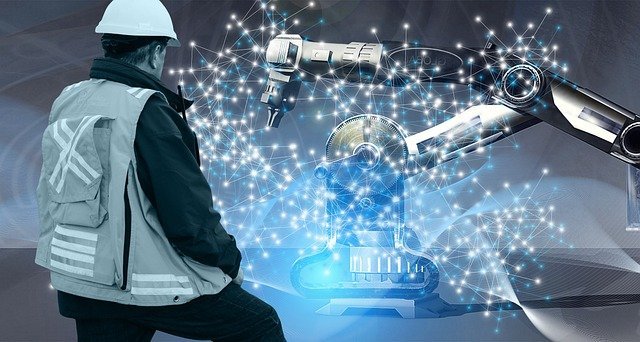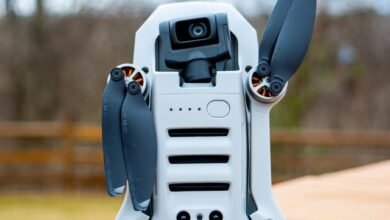Artificial Intelligence What is it and what are its uses?

Artificial Intelligence What is it and what are its uses?
Artificial intelligence is one of the most important technologies of the future. But what exactly is it and how does it actually affect our lives?
Artificial Intelligence – Definition
Artificial intelligence (AI) is the ability of machines to display human skills such as thinking, learning, planning, and creativity.
Artificial intelligence enables technical systems to perceive their environment, manipulate what they perceive, solve problems, and work toward a specific goal. The computer receives data (already prepared or collected by its sensors, such as cameras), processes it and interacts with it.
AI systems are able to modify their behavior to some extent by analyzing the effects of past actions and acting independently.
Why is artificial intelligence important?
Some AI technologies have been around for more than 50 years, but advances in computing power and the availability of massive amounts of data and new algorithms have led to major breakthroughs in this field.
Artificial intelligence is seen as a central element in the digital transformation of society and has become a priority for the European Union.
Its future applications are expected to bring about massive changes, but artificial intelligence is already present in our daily lives.
Find out more about the risks and opportunities of AI and how the European Parliament wants to craft EU rules on AI .
-
Software: virtual assistants, image analysis software, search engines, speech and facial recognition systems
-
“Incarnate” Artificial Intelligence: Robots, Self-Driving Cars, Drones, and the Internet of Things
Artificial intelligence in everyday use
Here are some AI applications that you may not be aware of.
Online shopping and advertising
Artificial intelligence is widely used to make personalized recommendations when shopping online, for example based on search and purchase history or other online behaviour. It is very important in commerce when it comes to product improvement, resource planning, logistics, etc.
Online search
Search engines learn from the vast amount of data users provide to provide relevant search results.
digital assistants
Smartphones use AI to deliver the most relevant and personalized products – virtual assistants answer questions, make recommendations, and help organize daily activities everywhere.
Machine translations
Written or spoken text translation software uses artificial intelligence. This also applies to the automatic creation of subtitles.
Smart buildings, cities and infrastructure
Smart thermostats learn from our behaviour, so they save energy, and in smart cities, AI can regulate traffic.
cars
Although self-driving vehicles are not yet standard, cars are already taking advantage of AI-based safety features. For example, the European Union helped fund VI-DAS – automated sensors that detect potentially dangerous situations and accidents. Navigation is also largely dependent on artificial intelligence.
cyber security
AI systems can help identify and combat cyberattacks and other cyber threats based on continuous data entry, pattern recognition, and tracking of attacks.
Artificial intelligence in the fight against the Corona virus
In the fight against Covid-19, artificial intelligence is being used, for example, in thermal imaging at airports and elsewhere, and to provide data to track the spread of the virus. In medicine, it can help diagnose infections based on computed tomography of the lungs.
Fighting misinformation
AI can also detect fake news and misinformation by checking social media information, searching for spam words, and identifying reliable online sources.
Other examples of the use of artificial intelligence
Artificial intelligence is expected to change almost all aspects of life and the economy. Here are some examples.
Health Care
Researchers are exploring using artificial intelligence to analyze large amounts of health data and recognize patterns, which could lead to new medical discoveries and improvements in individualized diagnosis.
An artificial intelligence program has also been developed to respond to emergency calls to recognize cardiac arrest during a call faster and more efficiently than a medical dispatcher. Another example is the EU-funded KConnect project which is developing multilingual text and search services to help find the most relevant available medical information.
Transportation
AI can improve the safety, speed, and efficiency of rail traffic by reducing wheel friction, maximizing speed, and enabling autonomous driving.
Industrial production
AI can help European manufacturers increase efficiency and bring factories back to Europe by using robots in production, improving sales funnels, or predicting time machine services and failures in smart factories.
SatisFactory, an EU-funded research project, uses collaborative and augmented reality systems to increase job satisfaction in smart factories.
food and agriculture
AI can be used to build a sustainable food system in the EU: by reducing the use of fertilizers, pesticides and irrigation, it can provide healthier food, it can increase productivity and reduce the environmental impact of the sector. Robots can be used to remove weeds, which limits the use of herbicides.
Many farms in the European Union are already using AI to monitor livestock movement, temperature and feed consumption.
Administration and public services
Using a wide range of data and pattern recognition, AI can provide early warning of natural disasters and enable effective preparation and mitigation.



